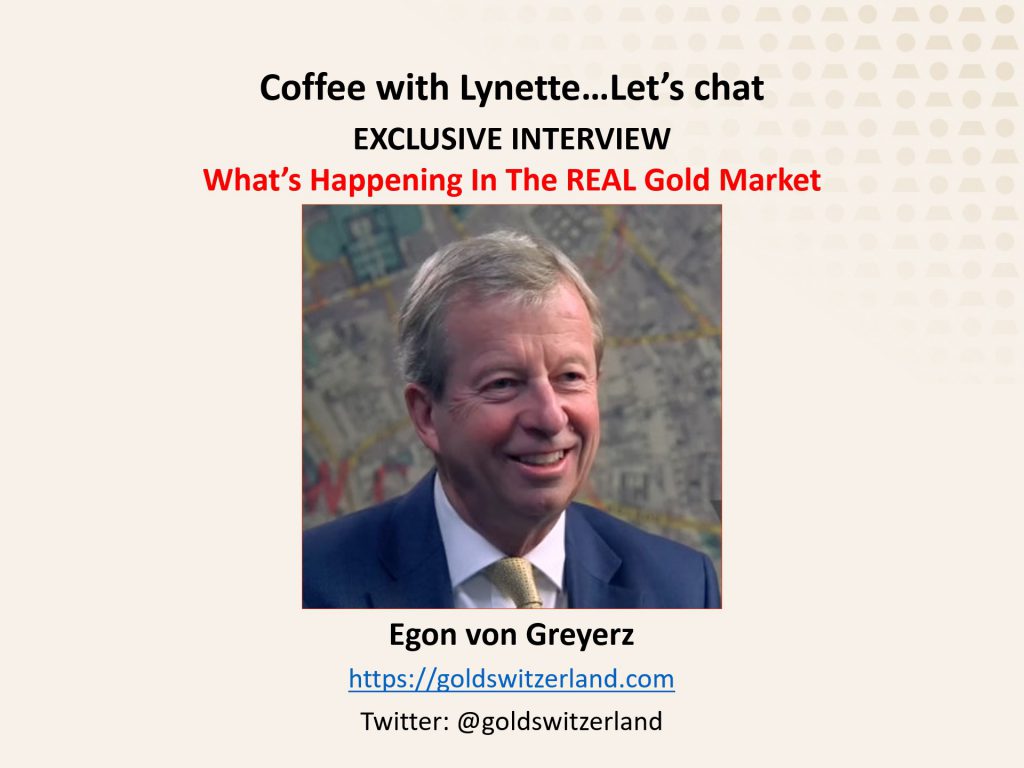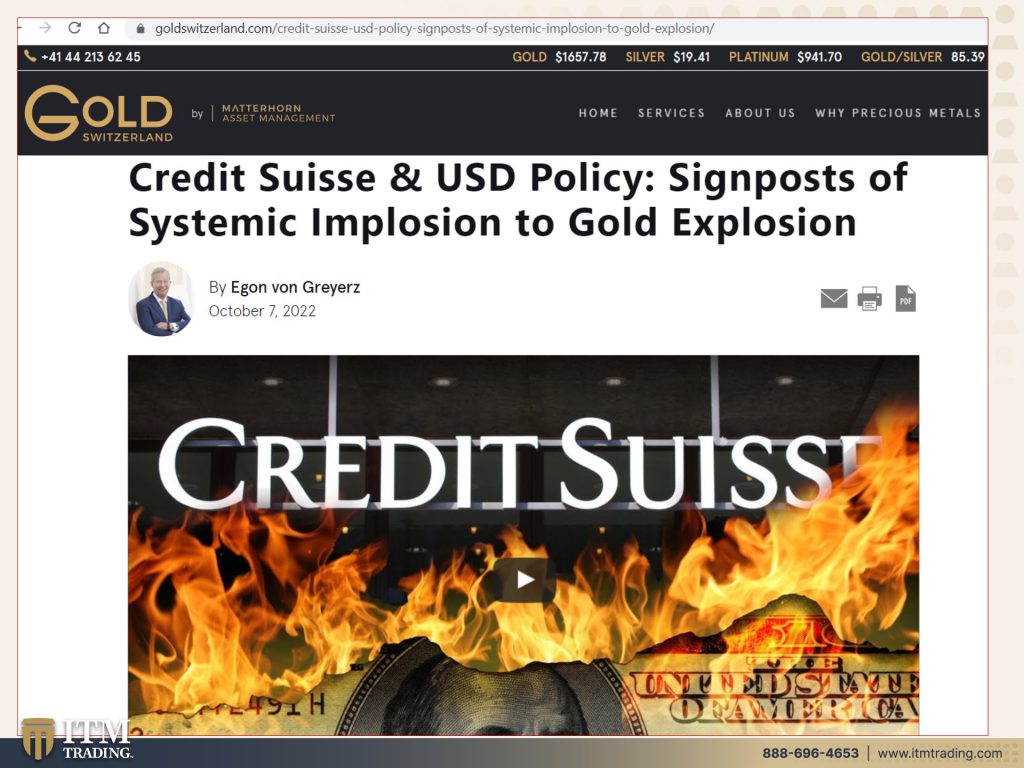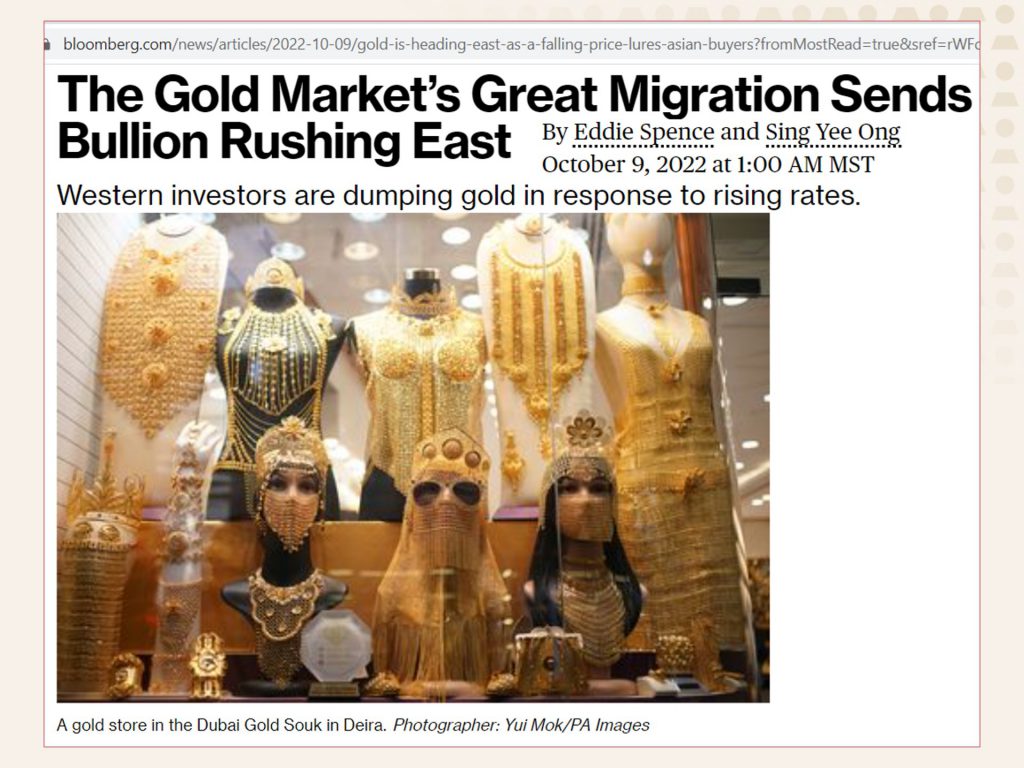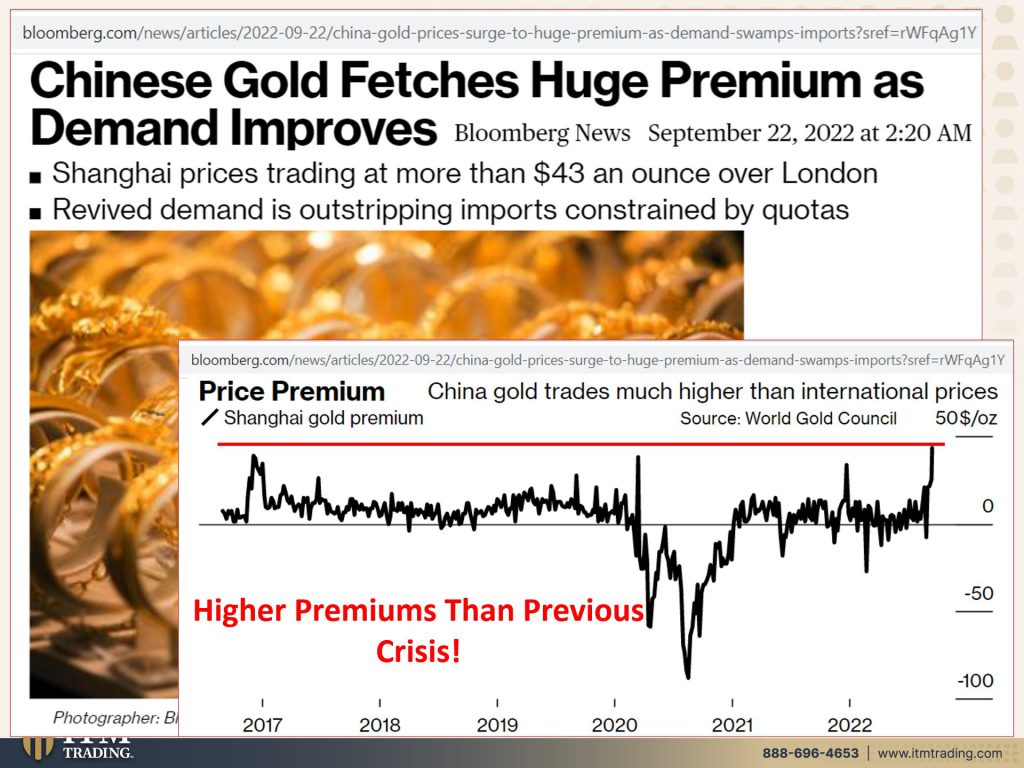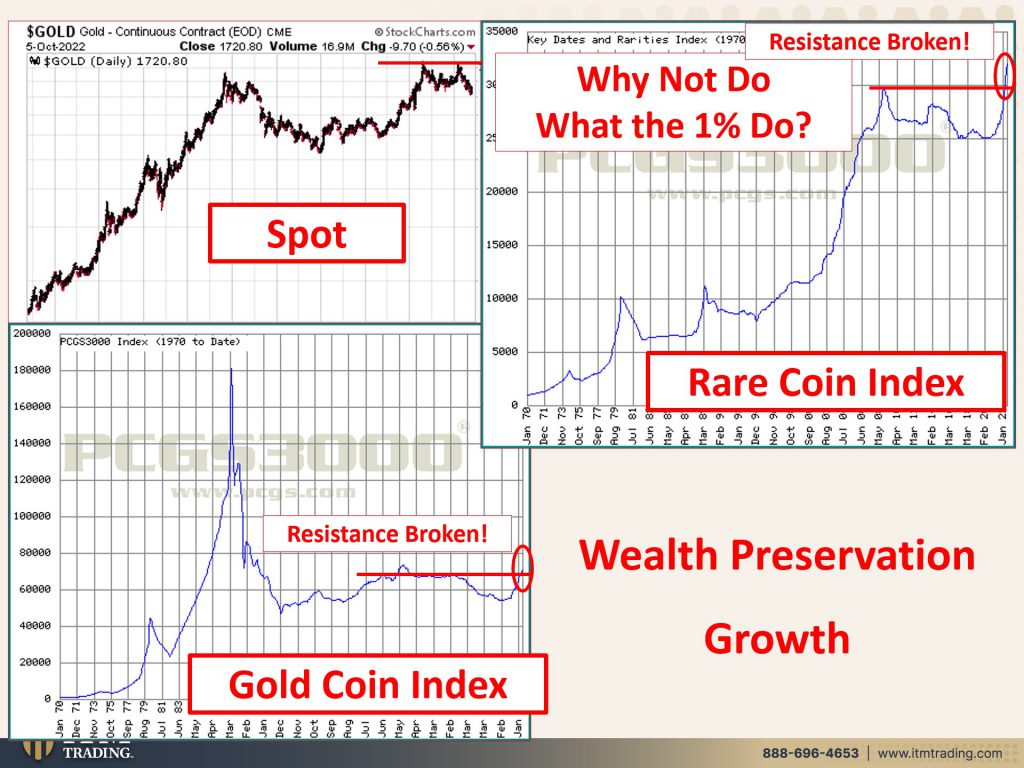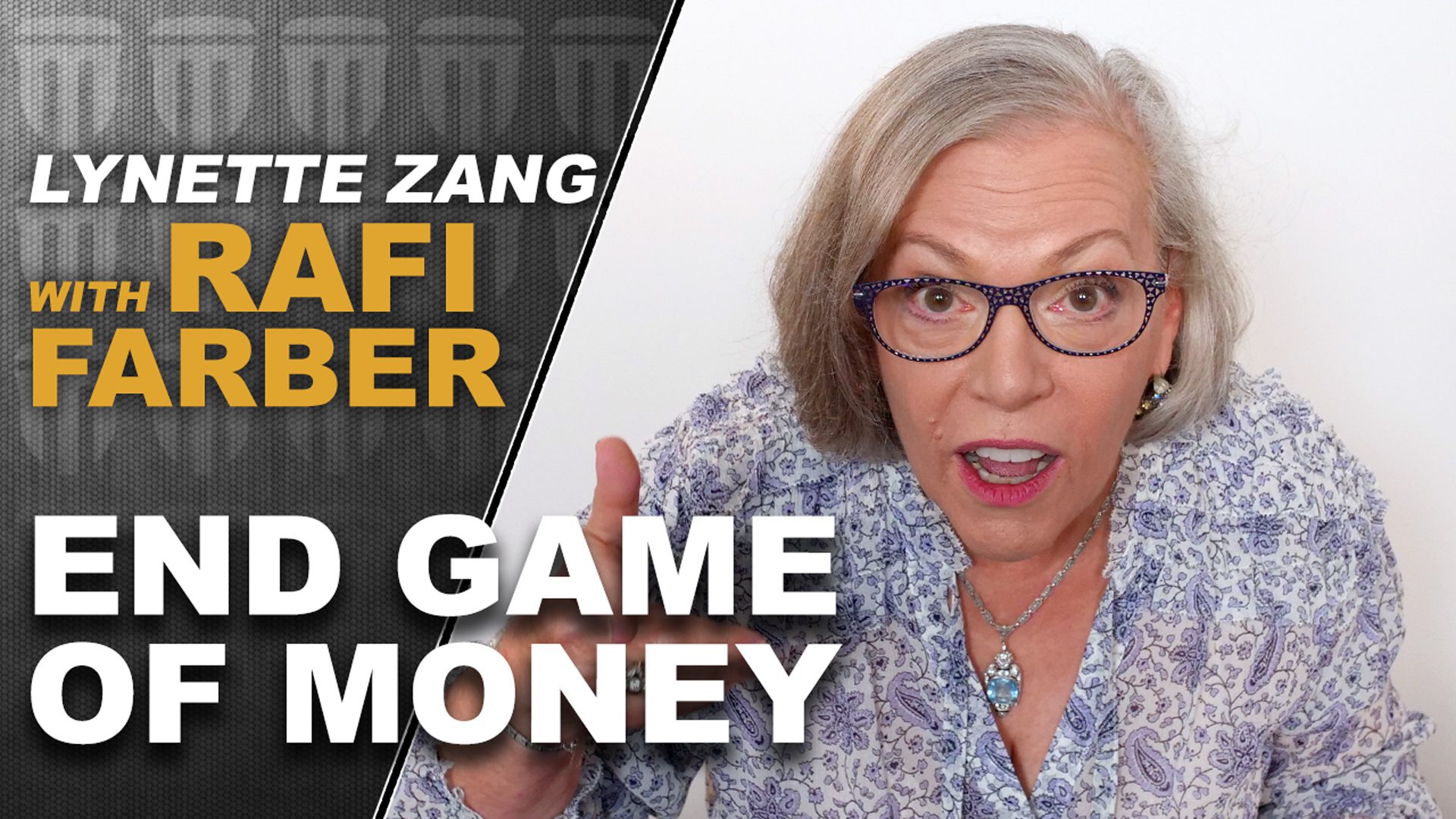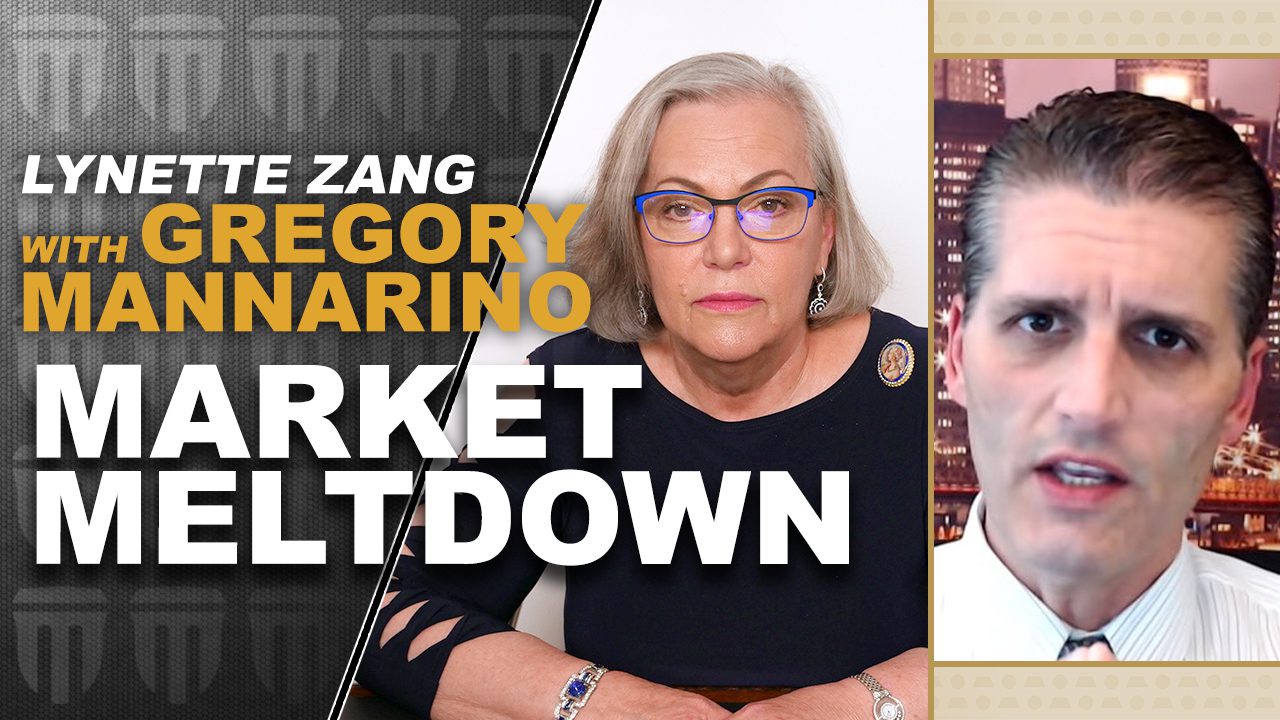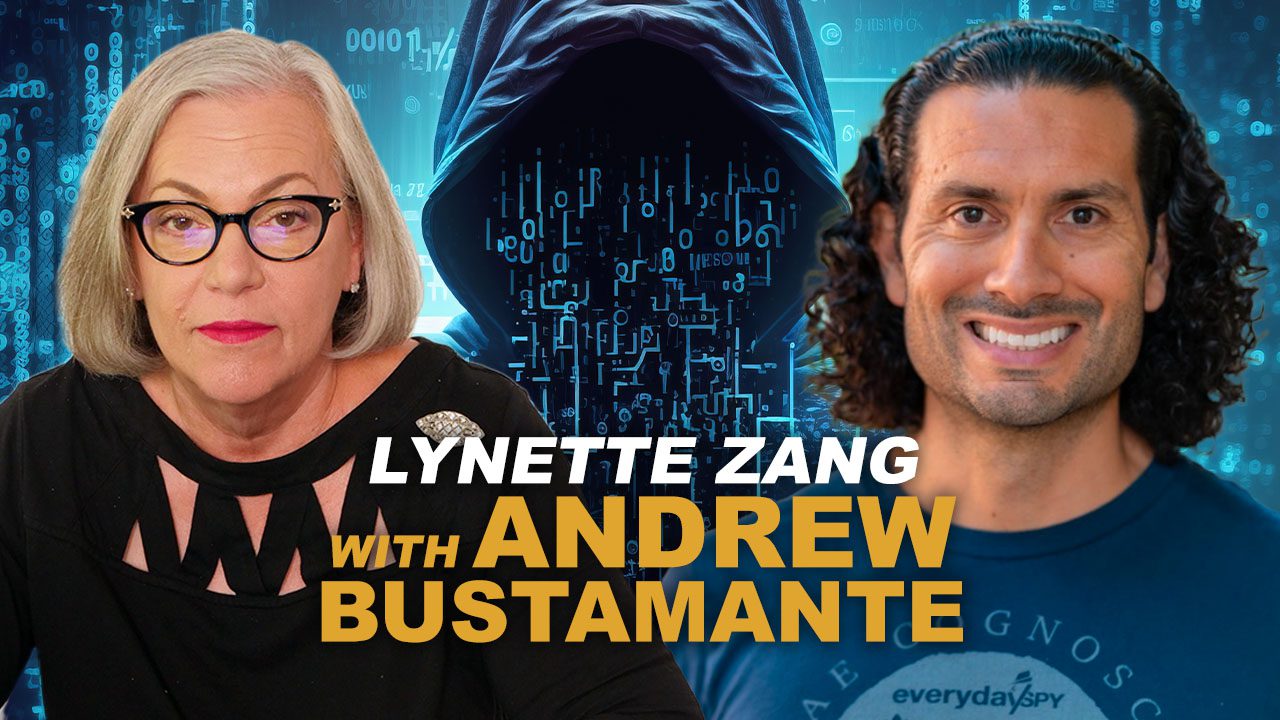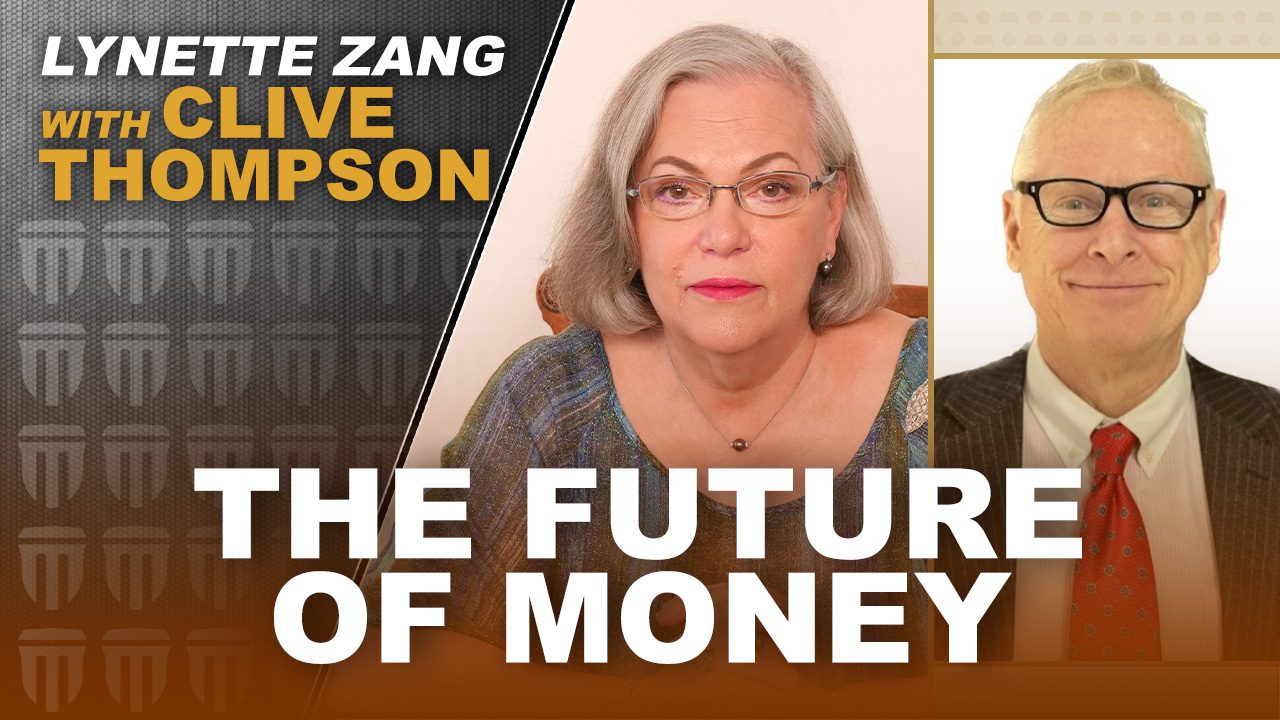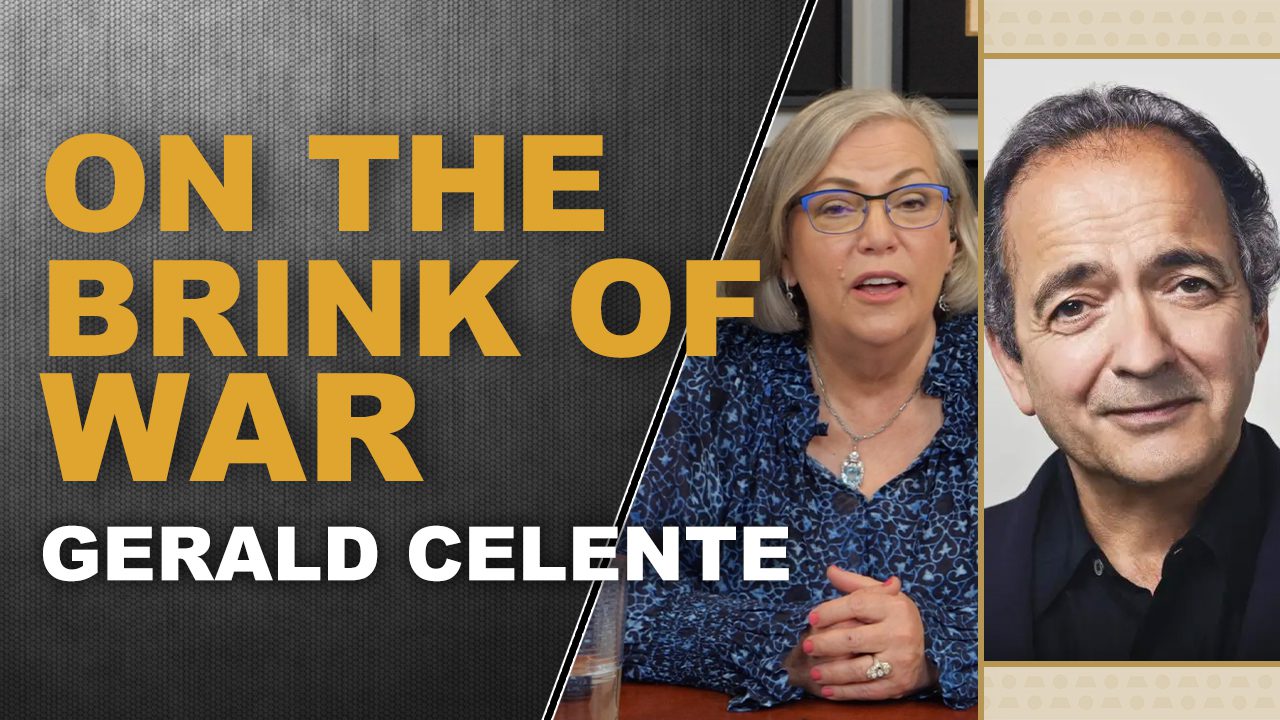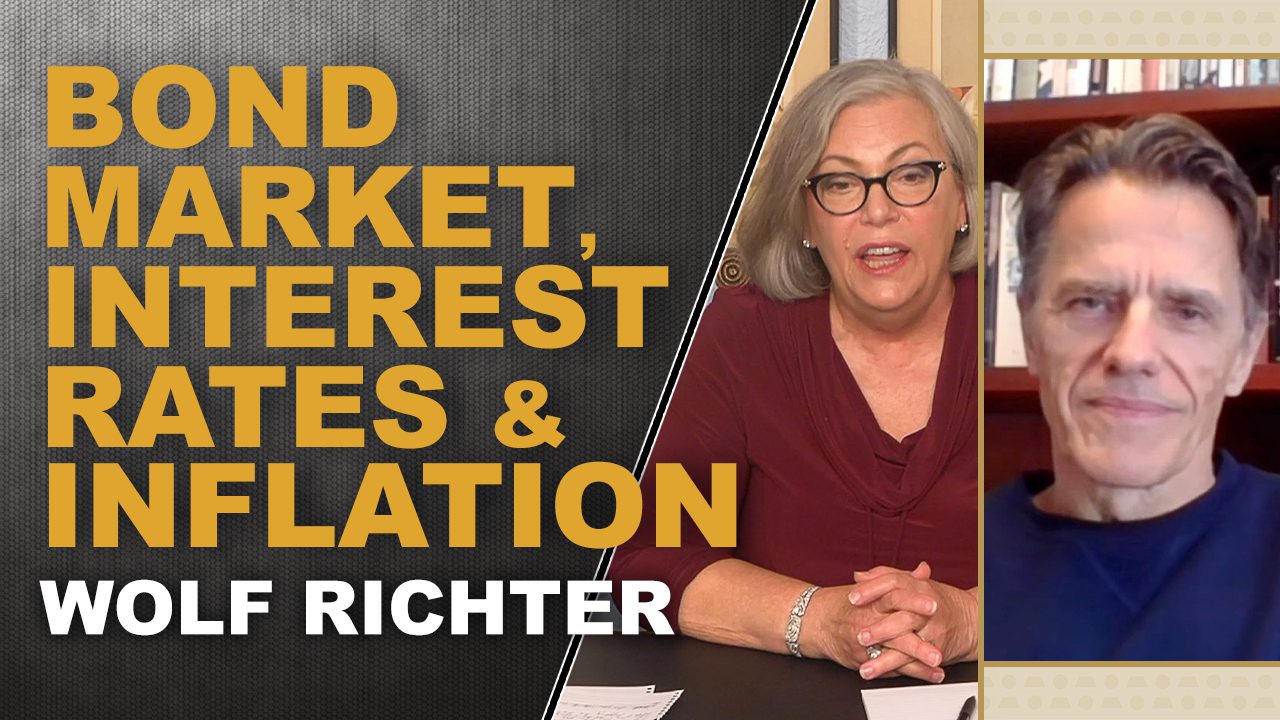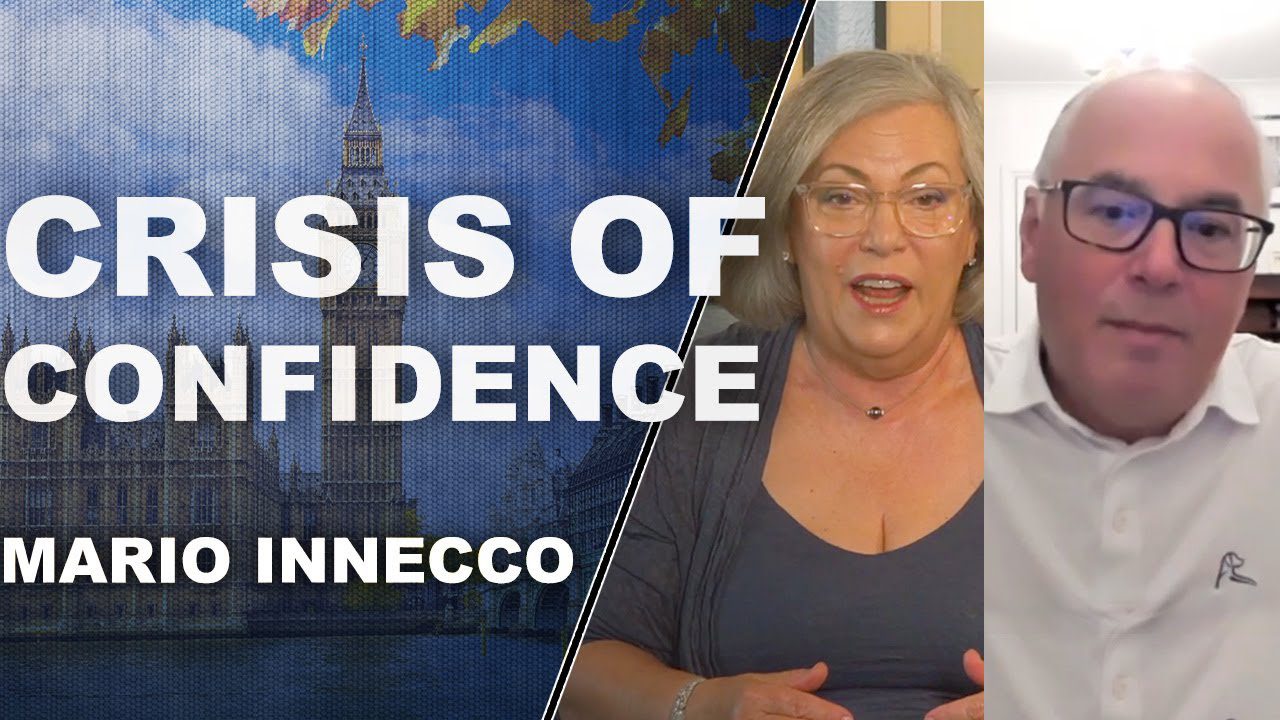What is Happening in the Real Gold Market?…Egon von Greyerz & Lynette Zang
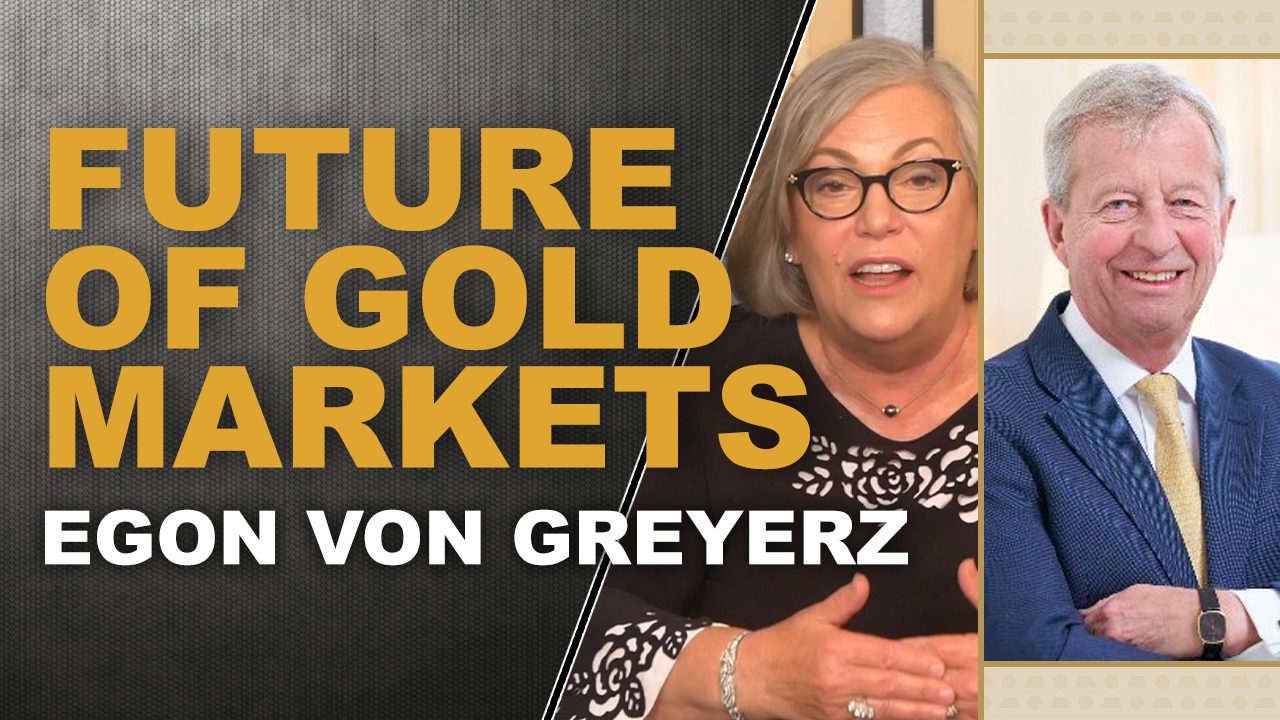
My special guest this week is Egon von Greyerz. We talked about what’s going on in the derivative markets, war, energy, failing economies, and really using currencies as a weapon.
CHAPTERS:
0:00 Intro to Egon von Greyerz
1:47 Great Britain & Credit Suisse
5:26 Derivatives vs. Swaps
14:15 Crisis in Confidence & CBDC’s
22:10 Wealth Transfer & Energy Crisis
20:43 War & the Weaponization of Energy
38:15 Strong Dollar
43:50 Physical Gold Markets
49:04 Protecting Wealth with Gold and Silver
TRANSCRIPT FROM VIDEO:
Lynette Zang (00:00):
I have a very important guest, someone that knows a lot about gold and currencies. We talked about what’s going on in the derivative markets, war energy, failing economies, and really using currencies as a weapon. All of that and ever so much more, coming up.
Lynette Zang (00:38):
I’m Lynette Zang, Chief Market Analyst here at ITM Trading and today’s Coffee with Lynette. I have one of my favorite goal people on the Planet, Egon von Greyerz now. Egon started Matterhorn Asset Management in 99 as a private investment company for high net worth individuals, pension funds, et cetera, all based on wealth preservation principles. So it doesn’t really matter how much money you have, but ego knows about preservation, a principle. He is an educator, prolific writer, popular guest on many YouTube channels, has a phenomenal YouTube on his own. I’m so excited to have him here from beautiful Switzerland. Egon, thank you so much. With everything going on in the world today, we really appreciate your taking your time to be here.
Egon von Greyerz (01:36):
Ah, it’s a pleasure Lynette. And you are my favorite lady I know to talk about the, these problems in the world. So yeah, I really enjoy it. Well, I’m sure we we’ll have a good discussion today too.
Lynette Zang (01:47):
Well let’s just kick it right off and just get right to the point because I think that what we’re seeing is the world actually starting to fall apart in Great Britain and with Credit Suisse. So can you talk about what you see happening in both those places? Cause they are related, aren’t they?
Egon von Greyerz (02:08):
Yes, absolutely. And, you know, and these are signs. I mean, we are at the end of an era and one thing after the next will break or, or one domino, the next will fall. And they’re just the first ones. It’s gonna happen everywhere. You know, we, we have we, we have no statesmen anywhere in the world. We have extremely weak leaders. And I don’t even need to name the countries because there isn’t a, there isn’t a strong leader anywhere. I, you could almost say that the only strong leader or one of the few would be Putin, but I mean, he’s not everybody’s favorite right now, So, so, which is understandable. So, but, but in the west, there are no, there’s no strong leadership. And this is what we get Lynette at the end of an era when, when the whole system is breaking up, we get the leaders we deserve. And they are pretty awful leaders. And what’s happening, of course, in, if you take in, in, in the UK so just a change of leadership and just a new budget, government budget that with a few not, you know, tax changes, which weren’t really that major. But they were taken the wrong way by the markets. And the UK guilt market or bond market collapsed. The pound collapsed. And the Bank of England had to come in to the extent of 65 billion pounds to support the pensions market. And of course, you know, today, Lynette, all markets are linked to derivatives. Even the pension funds, which are supposed to look after, you know, people’s most important money for their, for their last years of their lives. And that’s now also they used the derivatives market interest derivatives in order to create cash flow with, with the swap mark interest swaps, which is incredibly dangerous. So now when interest rates went up dramatically, you know, they were illiquid or, and they needed to put up more margin, and then the back of England had to come in and support it. But it just shows how incredibly fragile the system is. And don’t think that it’s just in the UK this is everywhere. It’s all the same. Every financial transaction in the world has got a major element of derivatives in it. All of them have interest derivatives and some have, have only synthetic instruments, even if it’s stock funds or bond funds, whatever it is. So, you know that’s what that’s, And, and the same, you asked about Credit Suisse, we don’t exactly know what it is, but you know, Credit Suisse had to get support from the fed dollar swaps, dollar loans from, from the Fed. And there was about 17 banks needed. Well this, we we’ve seen 11 billion of daily, daily swaps or financing. It is probably more. And clearly, I mean, all of that is a form also linked to derivatives. And it’s not, you know, it’s not just a Suisse to the UK banking system as we, it’s the whole system, which is weak. It’s just that one domino falls before the next,
Lynette Zang (05:26):
You know, Egon. They intentionally make these things so complicated and complex that the normal person would go, Well, I don’t understand that. And so they ignore them. And this is intentional, but could you in really simple terms for our viewers, explain a derivative and a swap, in simple terms.
Egon von Greyerz (05:51):
<Laugh>? Yes. Yes. In simple terms, challenge, basically a derivative is an artificial instrument that, derives from the underlying asset. And so it’s in synthetic instrument, which is based on underlying as asset. So if you take, if you have a derivative in, in bonds, for example you can just have a synthetic bonds, that you are buying adjust a piece of paper. It’s nothing to do with actually, except for the link is hasn’t got any real underlying assets with value in them. But then the most normal derivatives is interest rate. That’s the biggest ones are interest rate derivatives. And for an exchange derivatives. And that’s in simple terms where you buy and sell on a future’s market again, a synthetic instrument that is not linked to, real money except for when you settle it at the end of the day. Otherwise it is, is just a, a synthetic transaction that, that, and these, you know, these were used for example, when the whole of the, the subprime collapse in 2008 exactly the same thing. So these, were also derivatives that were, and assets were sold over and over again and package in the same derivatives. So you can multiply the actual value of the real asset by 10, 2000 times and trade in that. And, you know, a lot of the stock funds you’re buying for, for, well, the people investors are, are buying, they’re all derivatives. They haven’t got any real shares in them either. And so, and that’s what the bank of international settlement in bartel, which, which measures these and reports these derivatives, they reduced the total outstanding about 10 years ago from 1.2 could really to 600 trillion. Yes. But, but that was just, you know, they just did it over overnight. Like that reduced, but that wasn’t real. The outstanding risk, I am absolutely convinced was still at the time 1.2 quadrillion. And I estimate, and for what I’ve learned also that we are probably up over two quadrillion today of the derivatives. So, these are instrument, they’re over the counter. So they’re not traded on an exchange. No bank will keep the real risk element of those or the reserves against those in their balance sheet. They’re kept outside the balance sheet. And this, in my view, this is actually real money that’s being played with, is just synthetic money that’s not measured as money. And in my view is that this, when these problems in the world now unwind, that we have been seeing and this, these massive bubbles, and we saw it, for example, now with the Bank of England having to step in to save a, a pension fund mm-hmm. <Affirmative> mm-hmm. <Affirmative>, then these derivatives in my view will actually be converted from a paper instrument to real money. Because central banks will have to go and support all of these derivatives because they will collapse. This whole system will, collapse with derivatives and it will become debt. So, so instead of having say, two quadrillion of derivatives, we’ll have two quadrillion of debt as they try to save the system as when the system start collapsing. Cause that’s, you know, we’re on top of the 300 trillion outstanding debt in the world. There is, as I said, these two quadrillion derivatives. And I think a lot of that will become debt also in the next few years.
Lynette Zang (09:44):
Right. And there are a few things about the derivatives and things that I’ve been like researching and thinking about. Number one, you are right when, they changed the accounting for netting and consolidation and blah, blah, blah, blah, blah, to hide the real notional value at risk, which is based on that price action. That’s the problem with interest rates. They were held down, you know, near zero for over a decade. And so all these derivative contracts built up, but now we’ve got this transition from LIBOR, depending upon where you are in the world, a different interest rate benchmark. And that’s coming about unless they change it again. You know, June of 2023, it was supposed to be 21 and then they postponed it cuz they ran that test on just 80 trillion and apparently it didn’t work. I mean, dead silence. So this is kind of a disease that you cannot see. But part of what I’m looking at, and I want your opinion on this as well, is, you know, we’re dealing with globally high inflation and I’m really wondering how much of that is caused by traders trading these derivatives in, you know, energy and food and everything. What is your thought on that?
Egon von Greyerz (11:19):
Well, my view is that most of the inflation comes as a result of the massive increase in the money supply and thus in debt and in money printing, that’s where it comes from. If you, print money that no one has worked for and no one has produced anything for it’s clearly worthless money. And then when you put that money into the system and spend that money, let’s say that the whole money supply of, of the US is a hundred billion, and then you’d print another a hundred billion and all of a sudden you haven’t produced anything. So that means that everything goes up in price by a hundred percent because you know how 200 trillion or billion in money supply instead of a hundred billion and that money you printed is worthless and therefore that means that you have got inflation of 100%. And in my view, that’s primarily where the inflation comes from. Then we have also was what happens then, of course when there’s more money chasing the same products and the same services, these will go up in reprise automatically because there hasn’t been more produced. Right. So there’ll be more money to spend, but money that’s actually worth half of what it was. But nominally it is twice as much because they’re printed another a hundred percent. And, and then that cha chases the same amount of goods, which, which inevitably just goes up by, you know, mathematically would go up by a hundred percent. And that, in my view, is more of the reason for inflation than actually the derivative trading.
Lynette Zang (13:05):
Well, I don’t know. I mean, that, that could be, but then a derivative is all about leverage. I mean, it’s so much cheaper to buy a contract against 5,000 barrels of oil for, I think it’s 145 bucks for you know, to control 5,000 barrels of oil. And traders do not care. Remember we went to negative oil. Yeah. Right. I mean, that wasn’t, that had nothing really to do with supply and demand. It had to do with derivative trading. So it takes all that money that was created and then puts leverage on top of leverage. And traders don’t care about the economy. They just care about making their money. Right.
Egon von Greyerz (13:53):
No, you’re right. It’s, the derivatives are clearly a part of the money supply, but not measured in the same way. But they Correct. Not measure directly. What you’re saying is, which is correct derivatives is creating liquidity and, and therefore synthetic money, and that will obviously, you know, make the inflation higher. Definitely.
Lynette Zang (14:15):
So, it boils down to a level of confidence and we see a crisis in confidence against all of the central banks. The most obvious being the Bank of England right now. But what is your opinion on that confidence piece? Because that’s what’s really holding the system together. It’s the public confidence.
Egon von Greyerz (14:38):
Yeah. Well, it, yeah, so, obviously when there is political unrest, which we’ve seen in, the UK recently, or when they’re changing prime ministers <laugh> by the day, day almost, then of course confidence evaporates. And as you rightly said, a system is all based on confidence because, you know, it is like any market, stock market or property market, they’re not it’s, you know, market can go down by 50% by just if there’s just one, one seller and no buyer. Exactly. So, and that’s what confidence is all about, because it’s, the confidence that actually makes the market crash not the number of transactions. And of course we’ve now had, you know, making money or investing has been such an easy game for anybody. Yeah. You know, any fool could have just thrown a dart at any, any stock or, and made money in the last 50 years as long as they stayed in the market and didn’t get out of the bottom and get in at the, at the top of every correction. And that’s why now, you know, we have, we have bubbles in all of the, these asset markets. And of course, my view is that this time it will not be possible to save it. So far iN the last 50 years, every fall in the market has been bought up by, by central banks by printing more money. And investors have you know, bought the dips and never lost money. And but I think it’ll be different this time. We are talking about, you know, the stock markets are up, I think 50 times in the last 50 years and debt is also out 50 times. So this, these markets are clearly just only out to that extent because of the printed money. If they hadn’t printed or created 50 times more money, you wouldn’t have seen the markets at that level. So everything is overvalued. And you can see that in dollar terms. Also, you know, the dollar is if you measure the dollar in real money and the real money for you and I, that’s gold. If you measure the value of the dollar in gold, you know, and if you take then the dollar is fallen by 98% since 1971. So take off 98% of what you’ve gained in, in, in the stock market and property market. That’s what you’ve made in real terms. And that’s not very much money at all. You made 2%,
Lynette Zang (17:24):
Well exactly, over 50 years. But that brings me to something else that is really troubling me. I recently did a piece on the CBDC Central Bank digital Currencies. And what I discovered when I did that is that they are changing and have changed the functions and definitions of money. And I don’t know if you’ve seen this because it’s hiding in plain sight. If I hadn’t done that research, I would not know this. But originally, and this is really what gold performs, the four functions of money is a tool of measure, a medium of exchange, a tool to make sure you are fairly paid for your labor and a long term storage value to make sure that whenever you use that money, you are fairly paid for your labor. I don’t know when, cause I couldn’t figure this out, but they, first, they eliminated the long term storage, and of course they did because it’s a lie. The dollar, Anybody that holds dollars knows that. But now with the advent of the CBDCs, they wanna take away that being fairly paid for your labor piece and only have money considered as a tool of measure. So they know how much to pay you and a tool of barter. But as soon as you deposit that check, or it’s not even you, your check goes into the CBDC, they’re instituting or they, of course they intend to negative rates, which means if you made a hundred bucks as soon as they deposit it, all of a sudden there’s only 98 bucks in there, 95 or whatever that negative rate is gonna be. You know, it really is hiding in plain sight and it shocked me. Were you aware of this and what’s your feeling on it?
Egon von Greyerz (19:22):
Well, you know, it really, if we take money, as you said in originally money was just representing, you know there was a piece of paper before it was printed in metal form, and that was just representing the underlying asset which was placed in the bank. That was money and it was always backed by that gold that underlying asset. Right. So money is really from the begin now, money is today is also derivative.
Lynette Zang (19:50):
Exactly.
Egon von Greyerz (19:52):
Yeah. If you think about it, that’s all it is. And that’s because there’s no intrinsic value. And even less so today, because today it doesn’t represent the value that originally it was meant to be, which is actually the same as the underlying goal that was lying on the bank, in the bank. And therefore it’s just a derivative. And of course, that’s why it’s so wonderful for the, the central banks now that they are, they can derivatives, Oh, sorry, CBDC Central Bank digital money is just another form of paper money. Of course it is nothing different. And but it is also an elegant way for them, number one, to pretend that now we have a new currency system and, and the, we write off the old debt in dollars or in euros and now we introduce a new currency in form of digital currency. And but of course people will be fooled for a very short time. I mean, the other, of course, beauty for the authorities, governments, whatever, is that they can then fine you and tax you and turn off your, turn off your money whenever they want.
Lynette Zang (21:07):
It’s programmable, which is, you know, which is different than, this was not programmable. You were losing your purchasing power, but you made such a good point that this is really a derivative of this.
Egon von Greyerz (21:22):
Yeah, yeah,
Lynette Zang (21:24):
Exactly. Just like what’s on the market, the, those traders, they’re trading gold derivatives and silver derivatives and oil derivatives. They’re not actually trading the real, the physical.
Egon von Greyerz (21:38):
No. And we know that because nothing is ever delivered either. No, no one could, no one could deliver any, we talked about, talk about the gross value of the derivatives because people say, Well, it’s only, or the bankers will tell you that it’s not the gross value that counts, it’s the net value because we can, you can offset positions, but when counterparty fails, gross remains gross. And you know, who can, settle two quadrillion <laugh> of values? It doesn’t exist.
Lynette Zang (22:10):
You, you know what’s interesting about that? What it was pretty sure it was 2005 when they changed the bankruptcy laws and put derivatives ahead of actual vendors. Like, I’m a vendor, I sold you a product or company went bankrupt. Now somebody that bought a contract on, on how good my credit was or whether or not I would go bankrupt, they’re the ones that go to the head of the line and get paid out. So do you think we’re gonna actually see that come about? And is, is that a way to transfer all that wealth to the bankers or the derivative holders?
Egon von Greyerz (22:52):
Well, you know, I’m very clear what’s gonna happen at some point, whatever games they will play before that and whatever artificial resets that they will have, none of that will be for real. And none of it will work. If it will work is only, we’re a very limited period of time because what they’re doing is just playing with the same instruments and calling them something different. So I, that’s not gonna save anything. And what I’m, in my view, the, the inevitable consequence of all of this is that debt, you know, will first have, because when the derivatives explode, they will first print a lot of money to settle these derivatives. So debt will go dramatically, as I said, to maybe couple of quadrillion or whatever, certainly much more than it is today at at 300 trillion. And then thereafter the debt will implode because it’s worthless. It has zero value. No one is ever gonna repay anything. There is no money to repay it with. And as the debt implodes, so will, so will the assets that, all this underlying debt supported and therefore that we will have, that’s a reset that I expect that’s a disorderly reset. And we’ll come down both assets and liability, everything will come down to different at a very much lower level, and we’ll have to start again at a lower level that’s good for the world because it’s only by having this implosion of that and liabilities, it’s only am I having that. You can’t write it off the debt. It’s impossible. It’s impossible. You can’t write off just one side of a balance sheet. If you write off the debt, the assets will also be written off. So they will all come down by the same amount. So therefore it has to just implode. And, and then only from that level that we can show real growth again in the world. But I mean, there is a problem with growth anywhere in the world because it’s not just the money, I mean now they, everybody will realize that you can’t grow with printing money that doesn’t work. Right. But, but even if we don’t print money and have a sound economy, you know, we have reached now peak energy and all these alternatives, energy forms that people are shutting down fossil fuels, etcetera. And, and as you know, nuclear power plants in many countries have also shut down which is a very good formable turn to energy, but it takes decades to build a nuclear plant power plant. And they’re shutting all of that down. And, you know, the cost, So energy is now we’ve reached peak energy. And also the cost of producing a unit of energy also requires energy, of course. And that cost is increasing dramatically especially since all the energy that we’re getting up now is more expensive to extract. So all of these people who believe that we should stop with all the fossil fuels, which represent 85% of all the fuel used today for the world to turn around, surprising it’s not, it’s not possible. There will be no viable alternatives for decades, 50 years more. And, you know, gradually, maybe we’ll come with alternatives, but that will take a long time. And if we stop producing the fossil fuels or using fossil fuels in the meantime the world will totally collapse. Totally. Exactly. And the people, the glue themselves to the road and stop all traffic, which is happening in Europe everywhere, you know, they don’t realize that everybody thinks that this is just, we have, we’ve gotta just produce more alternative energy doesn’t work like that, sadly we all wish it could, but it doesn’t.
Lynette Zang (26:57):
Right. I mean, they have to still build that out, that infrastructure. It, it’s like California wants everybody to drive electric cars on one hand, and then in the next breath they’re saying, But the grid can’t handle it. Right? No. So they can’t, everybody can’t be driving electric cars. And and we are, we are seeing some backpedaling, particularly in the nuclear area, aren’t we? Some plants that were were shutting down, they postpone shutting them
Egon von Greyerz (27:27):
Down. Yes. Yeah. They have one Martin, they have. So, so, but, but you take Germany, they’ve shut down most of the plans, but the last two, three, they’re not shutting down now. Right. So, so, well,
Lynette Zang (27:40):
And, and aren’t we also seeing, like in Germany them nationalizing Russian energy parts that are still in Germany that they have access to?
Egon von Greyerz (27:55):
Yes, they are. I mean, the, well, we all know what the Lunas a policy or Merkel and her go government, but by first they had the problem of letting in just too many immigrants that the country couldn’t cope with. And then the, they outsource all their energy to Russia. Right. And of course makes sense me, you can’t be dependent on one country, and especially since we have a world where nobody can keep peace, and of course these sanctions out the US really initiated against Russia. I mean, they’re ludicrous too, totally ludicrous. And the whole western world is suffering and the whole developing, Well, everybody’s suffering cause of that. And you know, one thing, in Roman times, they countries prospered and, and countries that were occupied by, by Roman and, and every prospered because there was free trade. So the Romans didn’t stop free trades, but just because they conquered half, you know, a big, big part of Europe and, and, and part of the east and Africa, et cetera, we didn’t stop trade, trade continued, and there was a glorious times until of course, the empire collapsed around, you know, just before year 500, but
Lynette Zang (29:21):
Right. They base the currency.
Egon von Greyerz (29:24):
Yeah, exactly. So I, so that was… And now, you know, the US is has told the world and the western world and the eu to sanction everyone. And I don’t understand why the EU agreed to because they’re, and they’re not, they’re totally energy dependent on Russia. So the EU has shot itself in the foot, and especially Germany, of course. And it’s a disaster for Europe know this. And especially for Germany. I mean, the other countries were weak already. All of the Mediterranean countries were on the verge of collapse before that. And Germany was a strong country. Now, Germany is suffering dramatically and will not recover from, with this for a long, from long, long time, in my view. So, so we are, you know, it’s, it’s interesting, you know, as why you started by talking about Switzerland and, and the UK and the banking systems are being, being under attack but you know, all the dominance are folding in all areas. But this is exactly what we would have expected that when you get to have an end of an era that’s exactly everything that goes wrong, can go wrong, will go wrong, and it is happening. And then you add war to that also, because it’s always a part war of these troubled times, unfortunately.
Lynette Zang (30:43):
Absolutely. And, and that makes me wonder, I mean, really, because you brought up such a good point about, you know, why did the EU go along with the energy sanctions when they were so dependent on Russia? And I mean, you also made an absolutely accurate statement, and is during these currency regime shifts, these major shifts that we’re making, there’s always a war. And that makes me wonder if this is planned where it really is them and us. Do you have an opinion on that?
Egon von Greyerz (31:21):
Well, I read a lot about it, and I have a lot of knowledge about it, but I don’t really like talking about conspiracy theories because then, you know, some people will love to hear it and, and others hate to hear it.
Lynette Zang (31:36):
I didn’t even think of that as a conspiracy theory. I’m just looking at it and going, There’s so much insanity on both sides. You know, I’m not making a statement, I’m just asking that question.
Egon von Greyerz (31:48):
No, but, but it, it is very clear to the ones who, who bust study, for example, this war. This is, this war has nothing to do with Ukraine. This war has to do with Russia, again United States against Russia and United States, first of all, wanting to separate Germany from, from Russia and that relationship and dependence because the United States, didn’t want a strong access in Europe mm-hmm. <Affirmative> and Russia, and then going on to China. So, so, so, so that, you know, that’s, that’s one side of it. So it’s really, you know, you can, you know, I’ve learned in, in life that you should never, there was a book I read many years ago, which is an expression that we all know in, in various forms, is that before you judge somebody, you must walk three moon laps in his moccasins. This is an old Indian saying, but it’s like wearing somebody’s hat. Of course. So, but you know, and you must think, you know, if you can, I can wear Putin’s moccasins. Doesn’t mean that I agree with war and then agree with what he does. But, you know, it was very clear that there was this Minsk agreement in 2014 that was broken by Germany and France that basically said that the Don bus region in Ukraine, which is consists of almost exclusively Russians, should have free elections. But Ukraine continued to bomb that region. And then, that then even more intensively, just before the, the Russians came into the country and you know, some people say that there was a deliberate move by the United States to, to tell Ukraine to bomb in order to escalate the war. I don’t know, I mean, of no one can prove that I don’t know. What I’m saying is it was at least clear that this agreement should have been settled and you and the dumas region, which to this war is all about. Cause that’s what Putin wanted. That’s why he invade. He didn’t invade to take Ukraine, for the dumas region to have these free elections and decide since they’re a hundred percent Russian, more or less, they probably would’ve gone with Russia. And that’s what started this war. So yes, of course, there are other things behind a lot of things that we are not aware mm-hmm. <Affirmative>. Yeah,
Lynette Zang (34:17):
It’s a really good point on that. And then you look at what’s happening with China and Taiwan, do you think we’re headed for World War III?
Egon von Greyerz (34:27):
You know what, it’s a good question that first of all, some people are worried about war in Europe, and some Americans are afraid of coming to Europe because there’s a war. There isn’t a war in Europe. There, there, there are economic problems, certainly, but there’s no war in Europe. There, there is a local war in Ukraine. Russia has so far in history, but never gone west. They’ve only, they only chased the Germans out of, of of Russia in the Second World War to Berlin. But that was just to get the Germans out. Otherwise they’ve never invaded, the west. And they have no interest in doing that. Yes, they have gone east a lot, but that’s, they considered part of their territory. Cause that was the former Russia or former Soviet Union. So I don’t, I have no fear whatsoever of, of a war in Europe.
Egon von Greyerz (35:24):
And no country wants a war on the ground because nobody can win a war on the ground. And therefore the only war that would be is a nuclear war. If that, if there was one course, the risk is there because anybody can press that button by mistake. Cause they suspect somebody else having pressed it and, and they press it. I mean, that’s the big danger. But I don’t worry about that either, because if we get a nuclear war, we’re all dead <laugh>. And, and you know, we’re all, I mean, we’re all gonna die anyway. My philosophy is we’re all gonna die anyway. So, you know, of course you want your children or grandchildren to survive, but I cannot go and worry about a war because a war which is likely to kill the whole world, Like in, in never shoots book, book and film on the beach. Which, so, which that’s frightening and, and, and horrible. But, but nevertheless, I don’t worry a slight spit about that. And I, I’m not afraid of have of a war on the ground in Europe, for example. I think that that war will remain local to, to Ukraine, you know, it could touch, could touch Belarus or whatever. But, you know, they’re not gonna go further into Europe at all. And if there is a risk of war on the bigger scale, there’s only a nuclear war. And that’s nothing. I never worry about things I can’t do anything about dunno.
Lynette Zang (36:52):
That that’s true. But not all wars are, are played on the ground. And what we’ve witnessed with this war is the weapon. We’ve seen this before though, the weaponization of finance and the weaponization of energy. And, you know, the finance piece also means that food is now weaponized. So, I mean, you know, ground wars, I mean that’s like, that’s like history. And I think that’s more about show. I think that we could be seeing a World War III on ever so many levels as countries weaponize the biggest assets that they have. In fact, some are actually arguing that that’s what’s happening with the dollar is being weaponized. So it’s such a strong dollar and apparently nobody here particularly cares about the impact that that strong dollar is having against the rest of the world. But and certainly, of course, hey, I’d much rather get, I’m being facetious for viewers, but you know, after all, you would much rather have a treasury bond and the fragility in those markets than you would a piece of gold that has the broadest base of buyer. So can you address the strong dollar and that whole piece behind, you know, the fallacy, Well,
Egon von Greyerz (38:24):
I might simplify the strong dollar, of course, the since the introduction of the petro dollar, I mean the dollar became the well, the reserve currency on the payment currency of the world which everybody had to have number one for energy. And, and since it was used for energy was used for basically every commercial transaction between parties around the world in trading are even outside of the, of the even whether the US wasn’t involved. Mm-Hmm. <Affirmative>. So that was a very clever way for the, for the US to actually dominate the world with the currency rather than with weapons only. So that was a, basically a buildup of a financial empire, which has benefited the US tremendously, but at a cost. And, you know, the cost is that, well, as we know from the US debt, federal debt has gone up <laugh> virtually every year with, with a five years exception since 1930. Why not? Number one? And as I said, since in 71 when they took close the gold window, the US dollar has lost 98%. So the US is bankrupt living above its means, but it still has an instrument or a weapon with which the can dominate the world. But, you know, since we’ve seen all currencies declined by 97 to 99% since 1971 Lynette the dollar is just temporarily slightly stronger than the others because this is a game of, you know, stair stepping. And, you know, they can’t all go down. The currencies can’t all go down against each other at the same time. Right. And just, just now, recently in the last few years, the dollar has been stronger. That’s temporary. You know, they will continue this game. The dollar is, will be probably next to fall. Now, some people say that, that with now the financial system on pressure and Europe having problems and assets and with the political problems in the world and, and, and potential wars, the assets will flee to the, the dollar. Maybe they will a bit more for a while. But the dollar to me looks very overboard. Is, is, as I said, it’s a currency, which from a country which is totally bankrupt, both debt wise and, and balances of trade, balances of payment wise, etcetera, and living about, about its means for at least 50 years. And even 90 years if you take the federal deficit. So therefore the dollar will collapse too. I mean, you know, so that’s, it’s a temporary thing. And you know, I certainly wouldn’t hold any currency. You know, if you’ve gotta play the currencies, you will lose always. Always. Because no individual has the ability to switch from currency to currency. And therefore, why not just hold the currency that has never gone down ever in history over time. I mean, it’s, it’s so easy. And, you know, we are, we are being supported every day, Lynette by Central banks. When I say we who understand money and gold every day, the banks are spending billions and trillions in supporting gold’s value by constantly debating their own currencies. I think we can ignore the fact that the dollar temporarily strong and gold effort is temporarily weaker in dollars.
Lynette Zang (42:07):
That’s a contract too. That’s just a derivative contract.
Egon von Greyerz (42:11):
Yeah, exactly Right.
Egon von Greyerz (42:13):
Yeah. So therefore it’s so easy, you know, if you want to sleep at night and not worry about investments. But sadly, only half a percent of world financial assets are not into the one one’s security if you want, or currency, which is always over time has a survived and maintained its value and which is gold. It’s so simple. And as I said now with the increasing amount of inflation, money, printing and debt default, you will have more and more money printed in every country, in every currency. And, and the fact that gold has been standing still for a while in dollars means nothing. You know, it’s up seven, eight times in euros, in yen, in pound, etcetera,. since 2000 it’s just up only six and a half times in dollars or something like that. So the dollar isn’t strong at all. It’s just temporarily a little bit stronger than the other currencies, and no one, it’s just that you, Yes. So therefore gold looks weak measured in dollar terms. But we, we hear, and you, nobody meshes gold in dollar terms. You think the Japanese have seen the, the yen collapse, you think they measured in dollar that measured in yen and the Y is collapsed against gold. And it’s the same with the pound the same, but the Swedish kroner, et cetera. So, and, and the time for, the gold against dollar is gonna come very soon also. Yeah. So, so, so therefore he doesn’t worry me, I’m, I’m not worried about these artificial temporary moves, which I call this cause I can’t, you know, it’s not just playing that game anyway,
Lynette Zang (43:50):
Right? But there’s something also that’s really that I’m seeing. So I’m wondering if you’re seeing this too in the physical market because you rightly were talking about derivatives and what is the spot Gold contract is a derivative, it’s just a contract that can create as much as they want to. But I’m seeing premiums now in the physical market, like in China, they’re at the highest level, at least at the last two. The premiums are at least the last two crisis, the premiums are now higher than that. And I also saw a breakout in like the lower quality collectibles as well as, and a huge breakout in the very high, high end. So what are you seeing? Because you deal with massive volume. So are you, what are you seeing in your markets?
Egon von Greyerz (44:46):
Yeah, there are two what different markets now, really there is a retail market that smaller investors and especially we talk about here coins and maybe small bars and there also of course silver. Yeah, there we are seeing, yes. So that’s not our market, but I’m just, I’m, I know just like you, that that market has got massive premiums now. And but if you, if you deal in the bigger bars and in the wholesale market for bigger investors, gold demand so sorry, in the smaller market, high premiums, high demand in the bigger market, bigger investors for bigger goldbar silver bars, they low demand is right now quiet. Wow. And, and premiums are not high at all. Interesting. So yeah, so it’s a two tier market right now, except for the paper market, of course. So that’s interesting. But, but you know, price is telling you that you’re talking about massive margins, etcetera. Massive spreads on gold of coins, etcetera. But look at the price is not moving at all. So that market high demand is not moving the gold price or the paper price, which is made at the gold price anyway. So therefore there is no shortage at that end of the market of gold. Yes, there is steady demand has always been, the refiners are as always selling everything they produce. And you know, the 3000 tons that are being mined every year of gold is all being sold, which it always has been. But there is no excess demand now in the big market. So that’s still to come.
Lynette Zang (46:35):
But you know how interesting that is because when I’m looking at the ultra rarities, which is kind of, this is I guess a two-one market but the ultra rarities, the breakout has been like actually very substantial. And these coins will, I mean, they are still coins, so they are still retail, but these might go for, you know, 8 million, 15 million for an ounce. So I’m sure that the bigger market is gonna absolutely catch up with that. Cause it’s still smart money.
Egon von Greyerz (47:11):
I don’t think we are, I mean, I’ve learned patience so not use trying to, to time it in the short term. Yes. But I think when gold breaks out here now it’s going to go very fast in my view, because the underlying fundamentals in the world are so strong and gold has not and I’m talking about in dollars now because in other currencies, gold has been strong already and is strong but gold has not yet reflected the enormous amounts of money that has been created and printed in the last few years. So a plus there will be shift the investors once they realize that stock markers are going to continue down and bond markers are going to continue to be weak. And they have to go away from the 60 40, you know, 60% stocks in the 40% bonds like every average investment portfolio and especially pension funds had. And they have to realize that they have to include some part of inflation protection in this. Of course, the, the world is not gonna put all their money into gold because there is no gold available for that at all. Right? But if they go from half a percent to 1% to 2% of world financial assets, gold will explode. Because there, there, there isn’t enough gold quantities to satisfy that. So they can only be satisfied in higher price. And that’s going to happen. Definitely. And I don’t think we are far away from it. So, you know, and, and as we always say, put, buy your insurance before the house burns. Get it, get it now. Don’t worry about it. Just you know, don’t worry about the daily value of it, just have it and have it ready.
Lynette Zang (48:59):
What are you gonna do? Convert it into this garbage. I mean.
Egon von Greyerz (49:03):
Yeah,
Lynette Zang (49:04):
You know, really wise words, and I could go on and on cause there’s so much happening in this world. But I wanna respect your time because you are over a beautiful Switzerland. So I know that I really appreciate your late interview. I really do appreciate it a lot Egon, are there any other words of wisdom and you wanna tell people how they can find you? Of course all the links are below and also on the blog, but anything you feel?
Egon von Greyerz (49:37):
Yes, of course. Well, thank you for those words first of all. Because yes, I think it’s always very special to speak to you because we are speaking the same language. We’re trying to help a number of people. We are not, we don’t run businesses. This is a passion yes. Helping a few people and sadly only a few because most people don’t understand this and don’t believe in it. But we’re helping a few people to save and to protect their wealth at whatever level that can be at the one oz or one gram or level. Or it can be at a hundred kilo or a ton level, doesn’t matter. The principle’s exactly the same. And if people in Venezuela, for example, 10 or 20 years ago, had just bought a gram of gold or an ounce of gold, they could have paid for all their food now, etcetera, for, for a long time or so. So, you know, it’s important at whatever level you are to protect your assets. So we do it for bigger investors. So we have a one volt where the minimum is $400,000. And then we have the biggest private gold vault in the world, in the Swiss Alps which is a James Bond-like experience. It, it’s the protection that doesn’t exist in any other vault in the world. And that our minimum is $5 million. So it’s for much bigger investors. But as I said, the principle is the same whether you buy an ounce, whether you buy, buy a ton of gold principle is the same. You know, the protection now is absolutely critical in the times that that we expect coming. And that’s, that doesn’t include, you know, a war is in addition to that, we talk about the economic and financial collapse that we are likely to see. So, you know, but the otherwise, you and I often talk about that. It’s all about now we see it already, people suffering everywhere. We see it in you in many countries. People haven’t got money for heating. A lot of people are turning heating off now. They can’t buy enough food, they go hungry and this is normal people, this is not poor people living in the street. Yeah. But that’s gonna happen too. So, so it is already starting everywhere and it’s gonna get worse. And, and of course what we, what we have to do to the extent we can or everybody has to do is to help, help, you know, fellow human beings. You help friends and family and whoever you can help. Of course. Yeah. And you know, that’s key now because there are going to be a lot of people who are going to suffer very badly in these coming times.
Lynette Zang (52:20):
Yeah. It’s, really, it probably the, you know, you’ve gotta have food, water, energy, security, barterability, wealth preservation, but, and shelter. But, but arguably the most important piece is that community piece that you just brought up. So thank you for bringing that up. Cause
Egon von Greyerz (52:38):
Yes,
Lynette Zang (52:38):
I couldn’t agree with you more. Couldn’t agree with you more. And I am so, so happy to have you here today and, and I promise one of these days I’m gonna let you show me your big vault.
Egon von Greyerz (52:52):
Absolutely.
Lynette Zang (52:53):
I’d love to see it
Egon von Greyerz (52:54):
I’m sure everybody would. Absolutely, absolutely. Yes. Please come, please.
Lynette Zang (52:59):
Well, I’m going to plan a trip. I’m going to, it’s very interesting times to be gone these days, but I’ll, I’ll figure it out. I’ll figure it out.
Egon von Greyerz (53:10):
You’re always welcome.
Lynette Zang (53:11):
Thank you. So as you can see, I hope you guys got, I mean, we talk, we covered a lot of really important topics and things that are having an impact on all of us and also on precious metals, which is the primary gold, primary currency, metal, silver, the secondary currency, metal. But the reality is, is all of the fiat currencies, all the government currencies, they’re going to their intrinsic value of zero. So I hope you got a lot, a lot out of today’s interview, and until next we meet, please be safe out there. Bye-Bye.
Follow Egon von Greyerz ⬇️
Website: https://goldswitzerland.com
YouTube: https://www.youtube.com/user/egonvg/videos
SOURCES:
https://www.pcgs.com/prices/coin-index/pcgs3000​
https://www.pcgs.com/prices/coin-index/key-dates-and-rarities​
